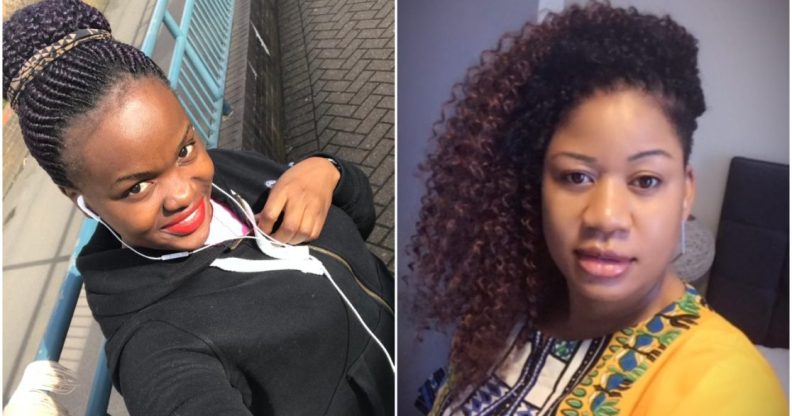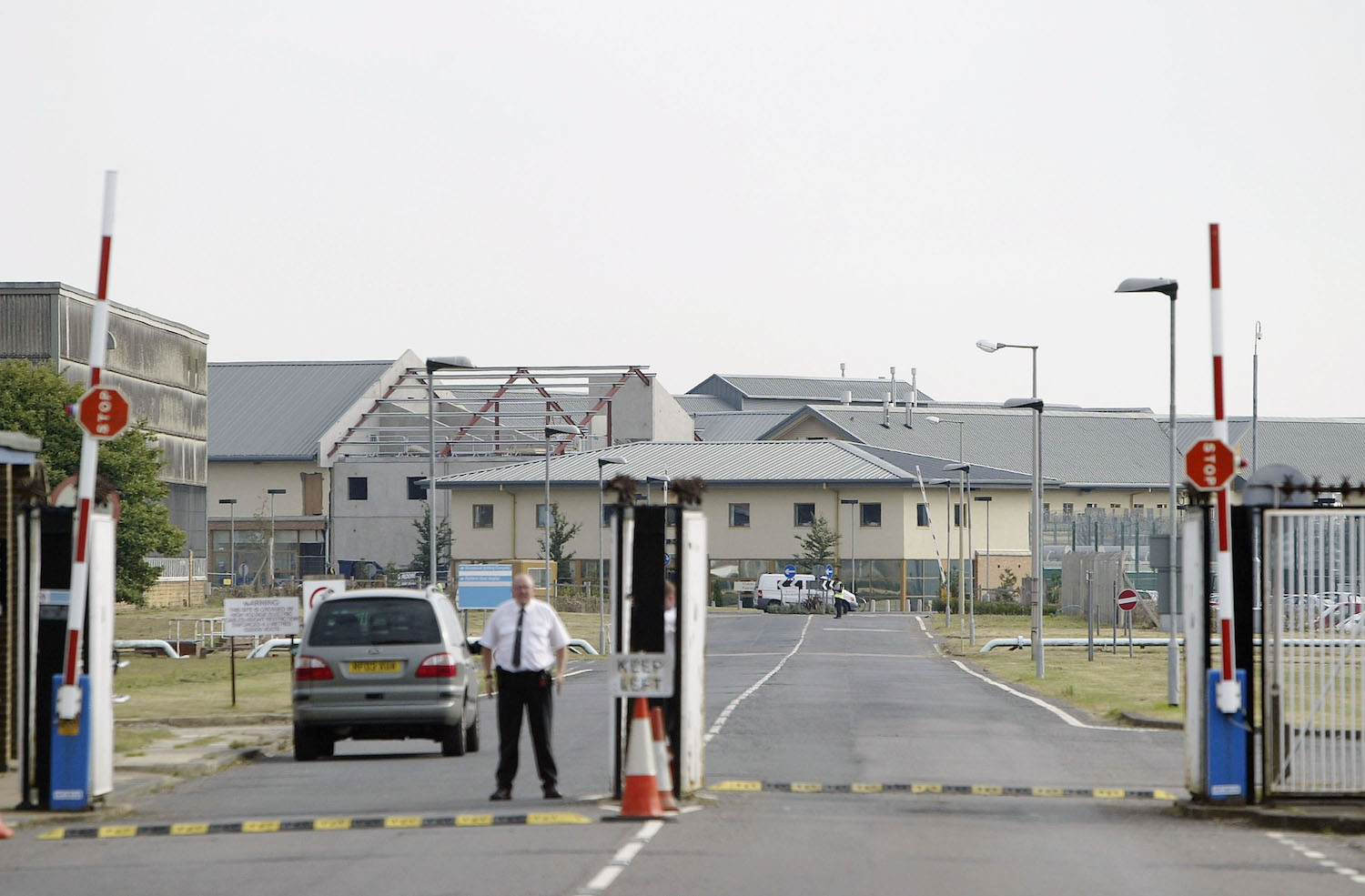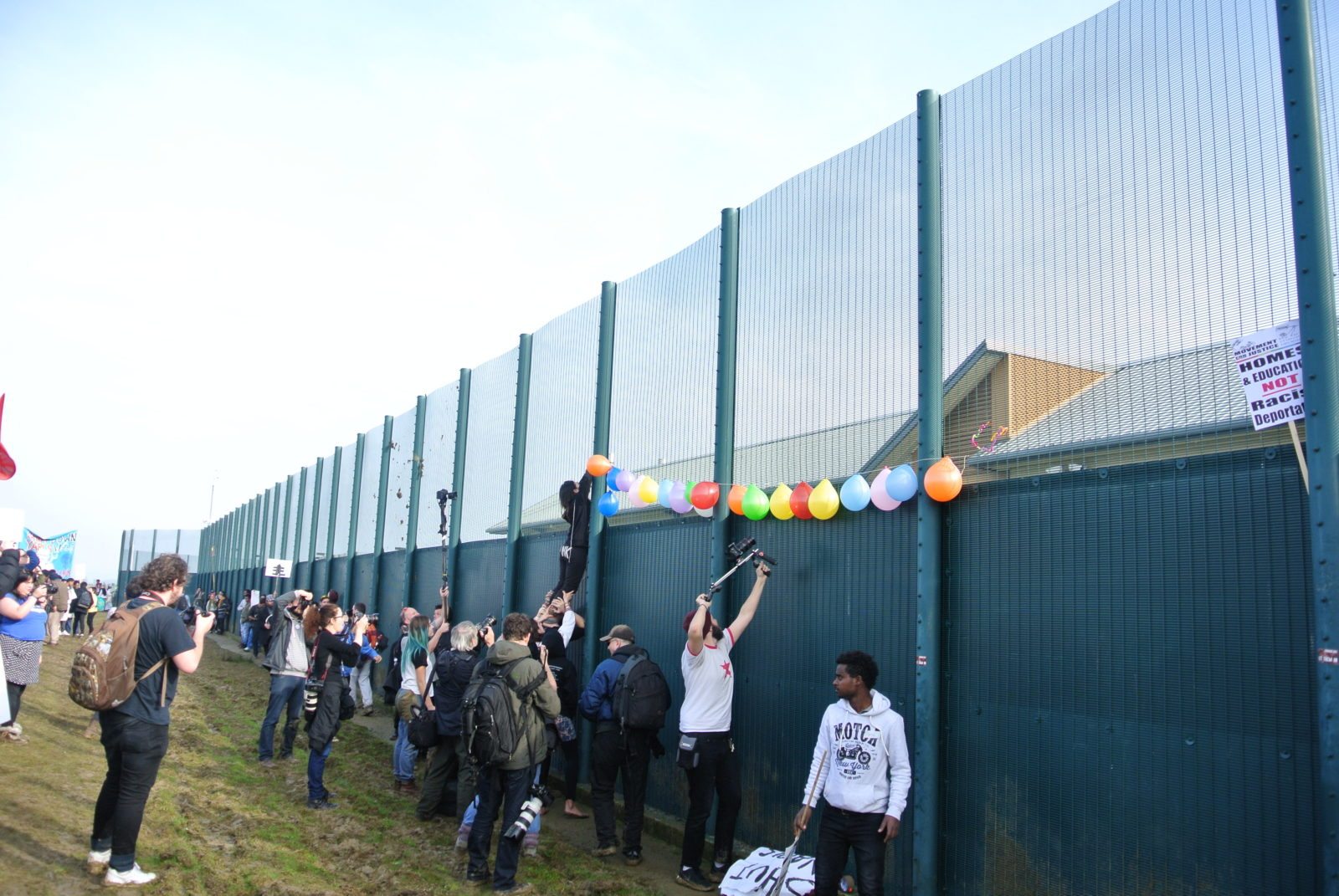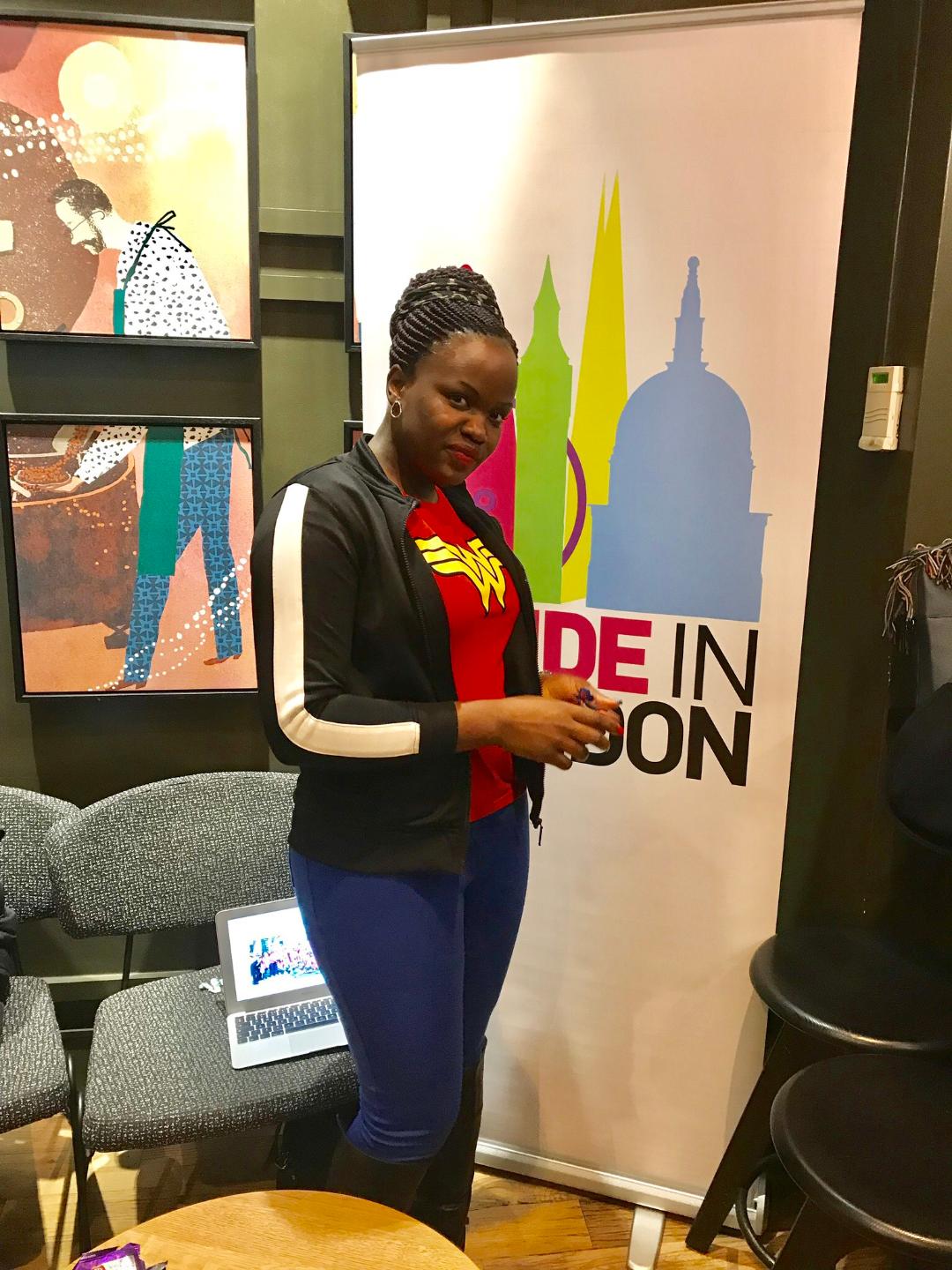Meet the lesbian asylum seekers battling the UK’s ‘hostile and homophobic’ immigration system

To mark Lesbian Visibility Day, PinkNews spoke to three lesbian asylum seekers about their harrowing experiences – from depression to attempted suicide – as they fight the UK immigration system.
In November, PinkNews revealed that thousands of gay, lesbian and bisexual asylum seekers have been refused asylum from countries where they could face prison, violence or death.
Figures quietly released by the Home Office for the first time showed that 3,535 asylum applications between July 1, 2015 and March 31, 2017 were made at least partly on the basis of sexual orientation.
This amounted to 6 percent of the total asylum claims in this time frame.

Yarl’s Wood Immigration Removal Centre (Getty)
More than two thirds (2,379) of these were refused.
The statistics showed that Uganda was the country with the highest number of asylum claims based on sexuality, with more than two-thirds of all asylum applications being made for this reason (257 out of 382).
The on-going Windrush scandal has highlighted the Home Office’s harsh treatment of Caribbean immigrants, after it was revealed that the government had been threatening those who had been in the UK for decades with deportation.
As Karen Doyle, national organiser at Movement for Justice, which campaigns for the rights of LGBTQ+ asylum seekers in Britain, told PinkNews: “The Windrush scandal has exposed the deeply embedded policy at the Home Office to deport as many people as possible, as quickly as possible, [and to] create a racist hostile environment that forces people to return to their home countries.
Related: ‘Extremely damaging’ school pamphlet on transgender children slammed by LGBT groups
“Everyone who comes into contact with the Home Office is viewed as a liar, that is their starting point.”
Doyle criticised how the burden of proof in asylum claims rests on applicants, meaning it is up to them to “prove” their sexualities to the Home Office.
“If they’ve lived a life where they have had children or been forced into marriage…the Home Office uses it against them,” Doyle explained.
She added: “Time and time again we see our lesbian members being refused, their histories disbelieved…I have seen tribunal judgements where lesbian relationships are categorised as [them being] just ‘really close friends.'”
Mariam Ssemwanga: “The system doesn’t treat us fairly…they say you are telling lies”

Image of Mariam Ssemwanga, used with her permission
Mariam Ssemwanga, a Muslim lesbian from Uganda, had her asylum claim made on the basis of her sexuality rejected in December. She is currently waiting for an appeal hearing on her case scheduled at the High Court.
“The system here, it doesn’t treat us fairly,” she told PinkNews. “When you tell them you are a lesbian, they deny it, they say you are telling lies.”
Growing up in Uganda, Ssemwanga was forced into marriage at an early age, and initially struggled to accept her own sexuality, even having suicidal thoughts.
Ssemwanga had previously applied to the UK as a victim of trafficking, but had her case rejected in 2010, and was forced to return to Uganda where her family rejected her once they found out her sexuality.
Ssemwanga returned to the UK in 2012, when she applied for asylum again as a victim of trafficking. Again, her claim was turned down.
She lived in the UK undocumented until 2016, when Ssemwanga, following the advice of a friend, submitted a new application to stay in the UK on the basis of her sexuality.
The Ugandan is currently living in a spare room provided by a bishop in east London, but can’t work until she is given permission to stay in the UK.
“I’m on antidepressants, it’s too much for me,” she says. “The waiting is too much.”
She added: “We run from our country to come here, to live a better life…I want to live a free life, practice my sexuality.”
Stella: “The immigration system is hostile and homophobic”
Stella, who wishes to remain anonymous, is in the process of appealing a rejected asylum claim.
She was born in France, but her and her family moved to Kenya when she was nine, where she grew up.
Stella told PinkNews that she has found the UK immigration system “very hostile, as is reflected in the news recently” due to the Windrush scandal.
Stella criticised the Home Office for requiring her to prove she has had sexual relationships with other women.
She said: “There are times in court where I’ve actually been asked about sleeping arrangements…I’ve often wondered would a straight person be asked the same questions that I’ve been asked.
“I just feel that the immigration system is homophobic – not only hostile, but homophobic as well.”
Stella was detained in the notorious Yarl’s Wood Detention Centre in 2016 for nine months, which she describes as a “place of despair.”
Stella, who suffers from depression, anxiety and post-traumatic stress disorder, said she tried to take her own life in Yarl’s Wood, and that her time there made her mental illnesses worse.
She said: “When you are removed from the normality of life as you know it, it is torture. It’s continued torture really. Detention for me is torture…it’s a modern day Guantanamo Bay.”
Stella talked about the “hostility of the guards” and a “lack of proper medical care” at the detention centre.
Asked how she thinks the immigration system could be improved in the UK, Stella said: “I wish it would look at cases sympathetically, and not put everybody in a box. And give people a chance – we have run here because we believed it was safe here.”
Stella said that, at times, she is not sure whether it is better to be in the UK or back in Kenya, where she would have to live in hiding. “Sometimes I question myself. I don’t know which is the lesser evil,” she said.
Related: Anti-trans activists hit out at ‘parasitic’ trans people at event in Parliament

Protestors outside of Yarl’s Wood detention centre (PinkNews)
Doreen Nakiswa: “I don’t sleep, it doesn’t matter what time I go to bed”
Brought up in a strict Pentecostal household in Uganda, Doreen Nakiswa fled to the UK in November 2015.
The 25-year-old woman had her application refused in August 2016, which she subsequently appealed and won, and is now waiting for her asylum claim to be considered again in November this year.
Speaking to PinkNews, Nakiswa said that waiting for her application to be decided is a constant psychological struggle – and that the uncertainty means she is having sleeping problems and suffers from panic attacks.
“You feel depressed,” she said. “Sometimes I don’t sleep, it doesn’t matter what time I go to bed.” She adds: “It’s the long waiting, it’s too much.”
Related: ‘Inspirational’ Ugandan lesbian campaigner wins human rights award

Doreen Nakiswa, used with her permission
In her home country, Nakiswa was the victim of corrective rape – giving birth to a daughter there – and lived in hiding with her grandma, who accepted her sexuality, until a mob came and uprooted her.
Still, Nakiswa considers herself lucky – the UK government has provided her with accommodation since her arrival in the UK. “I don’t pay for rent, I don’t pay for anything, that’s the only plus.”
But, she said, the government’s meagre allowance of £37.75 per week isn’t enough to send money back home to her daughter, who she is supporting.
She is also not allowed to work or claim benefits until her asylum case has been decided.
“If I go back home, I won’t be a free woman, I’ll live a life of pretence just to gain to acceptance in the society,” said Nakiswa. “All I want is to be a free woman, [to] kiss anyone I want. I don’t want to be persecuted.”
You can donate to Out & Proud African LGBTI, which is supporting the cases of Ssemwanga and Nakiswa, here.

